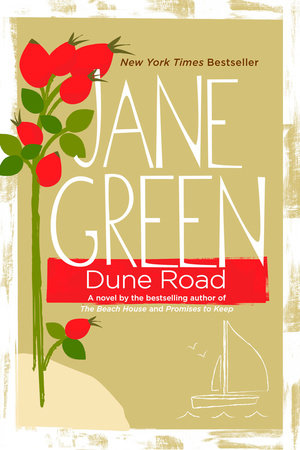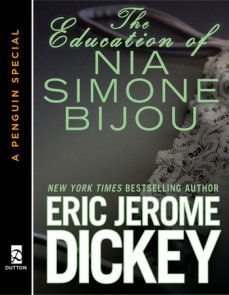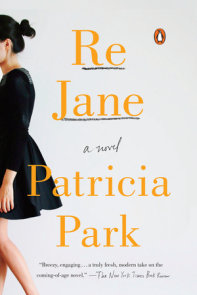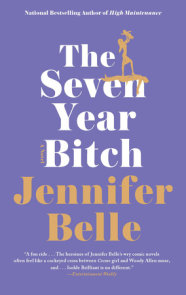READERS GUIDE
Questions and Topics for Discussion
INTRODUCTION
Kit Hargrove is trying to reinvent herself. Following her divorce, she is shedding the skin of her former life as the wife of a Wall Street high-roller and embracing both a new home and a new job as assistant to world famous novelist Robert McClore, all the while remaining close to her children and friends in the affluent Connecticut town of Highfield. Her transition seems to be going well until a series of events dramatically reminds her that nothing is ever quite as it seems.
Kit’s friend Charlie and her husband lose everything as they become victims of the recession, the ambitious entrepreneur Tracy conceals the rekindling of her relationship with an abusive ex-lover who has eyes on Robert McClore’s wealth, and Kit’s life is turned up upside down when a long-lost sister she didn’t know she had has an affair with her ex-husband. Secrets and lies force this once tight group of friends to question not only who they can believe, but who they can trust.
Dune Road is an exploration into the facades we all build around us, the extreme measures to which we go in order to maintain them, and the importance of having those we love and respect support us when it all comes toppling down.
ABOUT JANE GREEN
Jane Green was born and brought up in London. After abandoning a Fine Art degree and a stint in journalism, she went into public relations and worked for a time on This Morning. Jane then went back into the newspaper world and became a popular feature writer with the Daily Express, before going freelance and starting her first novel. A string of international bestsellers and marriage to an American later, Jane now lives in Connecticut – but flies home to London as often as four children and lots of animals allow.
Jane’s hugely successful books include; Straight Talking, Jemima J., Mr Maybe, Bookends, Babyville, Spellbound, The Other Woman and Life Swap. Her latest novel is Second Chance.
A CONVERSATION WITH JANE GREEN
Q. Kit Hargrove is arguably the main protagonist of Dune Road, yet you seem to give the same level of detail to all of the characters. How do you tackle juggling so many stories? What’s your process for sculpting a three dimensional character?
Characterisation is everything, and I have always tended to create my characters first, with only a rough idea of the story, and then let them tell their own stories. I create them, often first from a snapshot of someone I don’t know, and then let them live in my head for a few weeks, scribbling notes. I love writing ensemble pieces, someone I wasn’t always confident enough to do, but the characters, when done well, feel so real to me they do tell me where they want the story to go.
Q. The people of Highfield seem to be plucked directly from reality. How much of your writing comes from your personal experiences? Where do you normally look for inspiration for your stories?
Of course I draw from my own life and that of my friends, but I never write about one person, despite what people may think. I have heard of many people who think they are in my pages, but that, I think, is what makes my book popular: not that I do write about real people, but that I write about them with a realism that makes you feel as if you could know them, or indeed, you do.
Q. What made you want to write this story in particular? Which characters were most exciting to write about? Which characters were you most interested in exploring?
I wanted to try my hand at a mystery, a genre I enjoy reading but had never attempted. To be honest, it was all rather more complicated than I expected… I loved writing Kit’s sister, she felt very real, and I am always fascinated by women who have the sort of magnetism that draws everyone to them; it is a rare, and sometimes dangerous, trait.
Q. The recession plays a big role toward the latter half of the novel. What role do current events play in your writing?
Living in an affluent suburb in the midst of a recession, I couldn’t not write about it. It affected everyone, and particularly those who are caught up in the materialism trap, without having the real means to support that lifestyle. I was interested in how life can turn on a dime, and by appearances, mostly that things are not quite how they seem.
Q. Do you envision a continuation of this story for these characters? What are you working on now?
I may revisit Kit at a later date, but I have just finished Promises to Keep, which I am passionate about. It was written during a year of nursing a friend with cancer, who asked me to write about it. It is not her story, but has a theme of breast cancer, and is the story of two sisters. Emotionally it was the hardest book I have ever written, and my friend died during the course of the writing. So of course it is for her, a book written with an angel at my shoulder.
DISCUSSION QUESTIONS
- The home is a powerful symbol throughout this book. To what extent does each characters’ idea of “home” affect her actions? How does it reflect who they are? How does your idea of home differ from those in the book?
- Dune Road offers a wide range of characters at different crucial moments in their lives. With which characters do you most identify? Which characters do you find most provocative?
- What significance does the idea of feminine identity have in this book? In what ways does the book stray from female archetypes we see in other literature and media? In what ways does it agree with them?
- The community of Highfield seems as much a character as any of the protagonists in the book. What role does social status play in Dune Road? How much pressure does it put on each character, if at all, and how does it drive their actions?
- Annabel says, during a discussion with Kit, that “we are either born addicts, or not.” Do you agree with this sentiment? What significance does fate have in the lives of Dune Road’s characters?
- Kit and Edie have a conversation regarding the nature of marriage in which Kit bemoans the imperfections of her marriage to Adam while Edie argues that “a lot of the time that’s all marriage is.” With whom do you agree? Do you consider, as Kit often worries throughout the book, her reconciliation with Adam as a “step backward?”
- How does Kit’s lonely childhood reflect in her adult life? How does Tracy’s experience with domestic abuse inform who she is? What role does these characters’ upbringing have in their lives?
- Charlie and Keith suffer great loss at the hands of the economic recession. How do you feel about Charlie’s anger toward Keith? Do you see Keith as a victim or as the guilty party? How important is it to you to share financial responsibility in a relationship?
- Two of the central themes of this book are loss and rebirth. How do you feel each of the characters handles loss? How important is the idea of reinvention to you?
- What are the moral implications of Adam and Annabel’s affair? Do you feel they were in the right to pursue each other or did they cross the line?
- One of the most surprising things about Tracy’s reconnection with Jed is that she sought him out on the Internet, despite a history of abuse. What does this say about the complex relationship between the abused and the abuser? What’s your opinion of Tracy’s actions throughout the book and how much control do you believe she had over her choices? Were they choices at all?
- How have these characters changed during the course of the book? What surprised you about the ending? What future do you see for each of the characters?




















